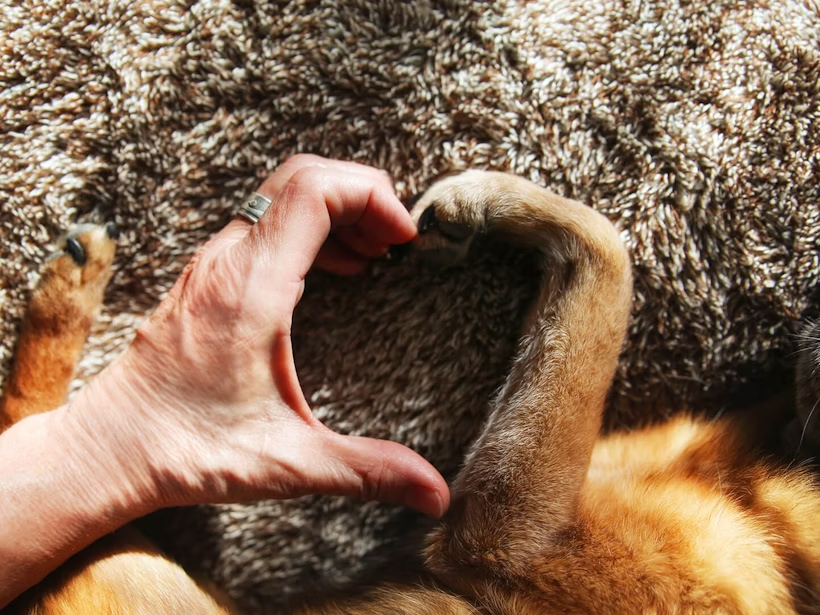It’s no secret how much we love our dogs. They sleep on our beds. We dress them in sweaters on chilly days (or whenever fashion dictates). We buy them presents on holidays and birthdays. They are often our favorite playmates, nap buddies, and sounding boards.
But do dogs love us back?
The short answer is, “Yes!” Dogs do feel love. Deep down we’ve always known that. But understanding why and how dogs love requires a little explanation.
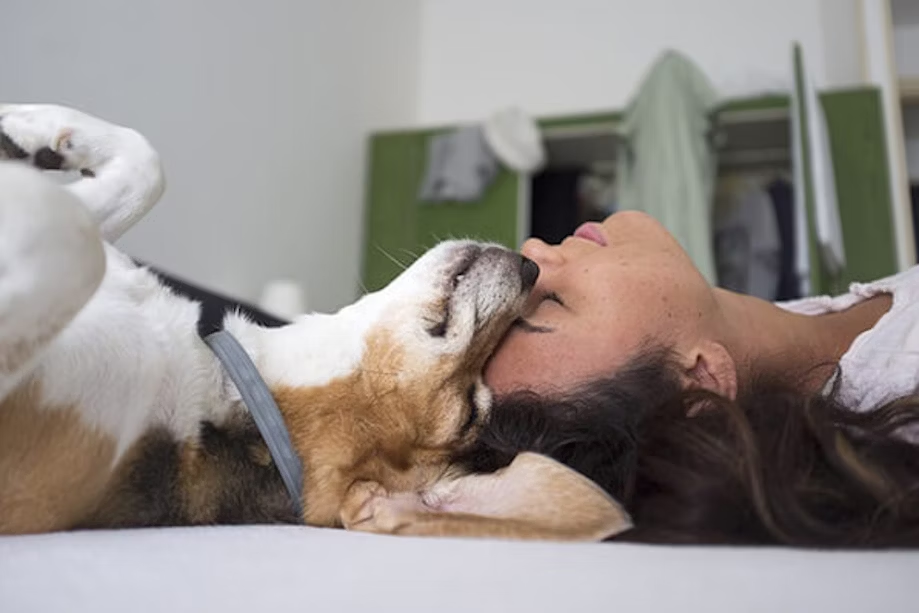
The science behind the love
"I love you more than bacon!"
Dogs can’t talk, but if they could, you just might hear them make that proclamation.
Gregory Burns, a neurologist and author of What it’s Like to be a Dog, conducted a research experiment that compared how dogs respond to certain stimuli. The dogs in the study were put in MRI machines and given both praise and hotdogs. The assumption being challenged was that dogs only pretend to love people in an effort to persuade us to give them food.
Analysis of the reward center in the dogs’ brains showed, however, that most of the dogs responded equally to praise and hotdogs. In other words, they love us as much as they love food. And a solid 20% had a stronger response to positive interactions with people.
If your dog prefers you to processed meat, it’s a sure sign of love.
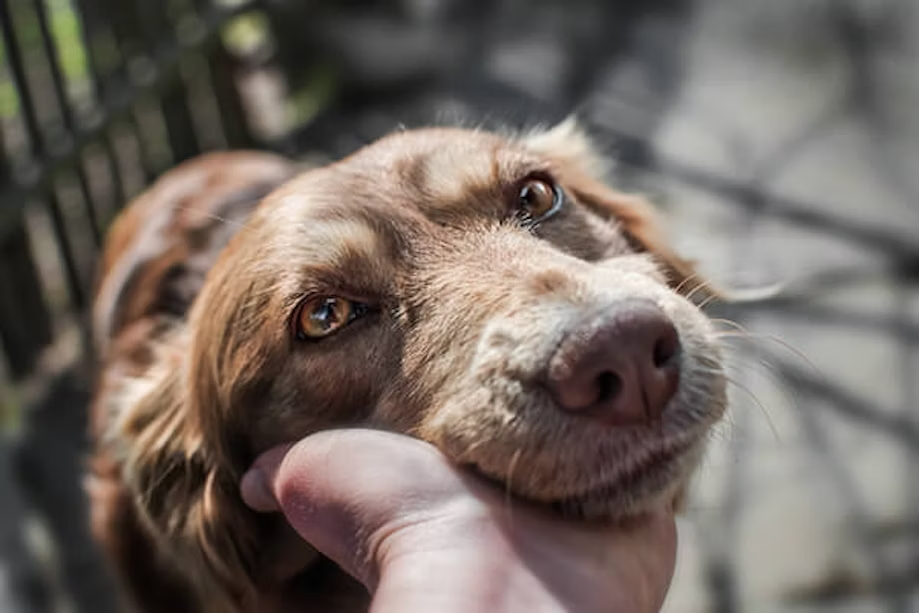
5 ways your dog shows love
Okay, we’ve established that dogs love us. But how do they show us that love? There are a few cues we can pick up from their body language and behavior that let us know how our pups are feeling.
1. Wagging their tails
A dog’s tail is used to communicate a range of emotions, but a friendly wag and a smile on their face is a sign your pup is relaxed and happy that you’re around.
2. Licking you
Dogs picked up this sign of affection from their ancestor, the wolf. Wolf pups lick their mother’s face to let her know they are hungry. The dogs we know and love today use this instinct to let their person know that they love them and are not a threat. They may also lick you in an effort to groom you, which is another way dogs show intimacy.
3. Following you around
Wolves are pack animals, and modern day dogs are no different. If your pup is always underfoot, it does not mean they are trying to trip you (though that can often be the end result). It does mean they are loyal and enjoy spending time with you.
4. Leaning or sitting on you
A dog curling up in your lap is a clear sign of love, but so is any effort your pup makes to touch you. So next time your dog leans against your leg or rests a paw on your arm, know they consider you a beloved member of their pack.
5. Playing!
Dogs are playful animals. It’s one of the reasons we enjoy spending time with them. Games of fetch, chase or play wrestling are signs of affection and are your dog’s way of forming a bond with their favorite buddy.
Every dog is one-of-a-kind.
So it makes sense that each may also have unique ways of showing affection. We asked our Facebook community members to share examples of their dogs’ love language. Here are a few of the adorable responses:
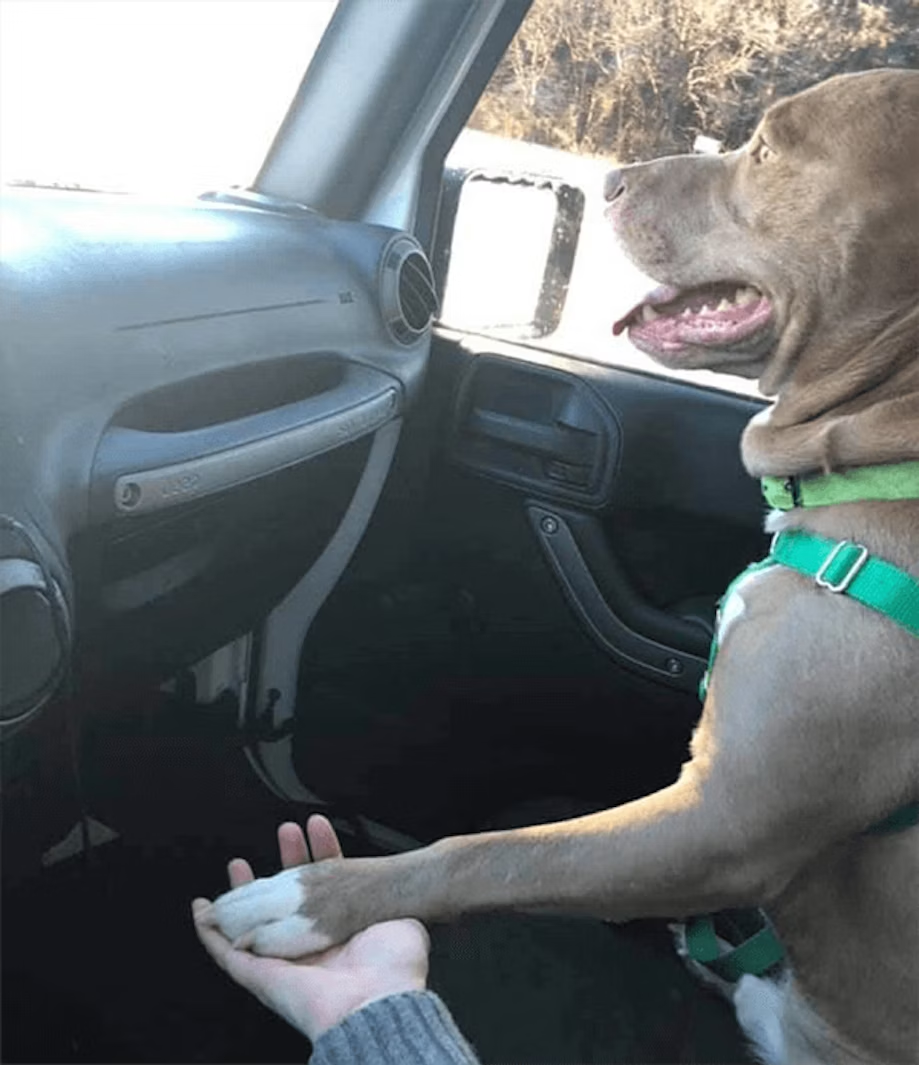
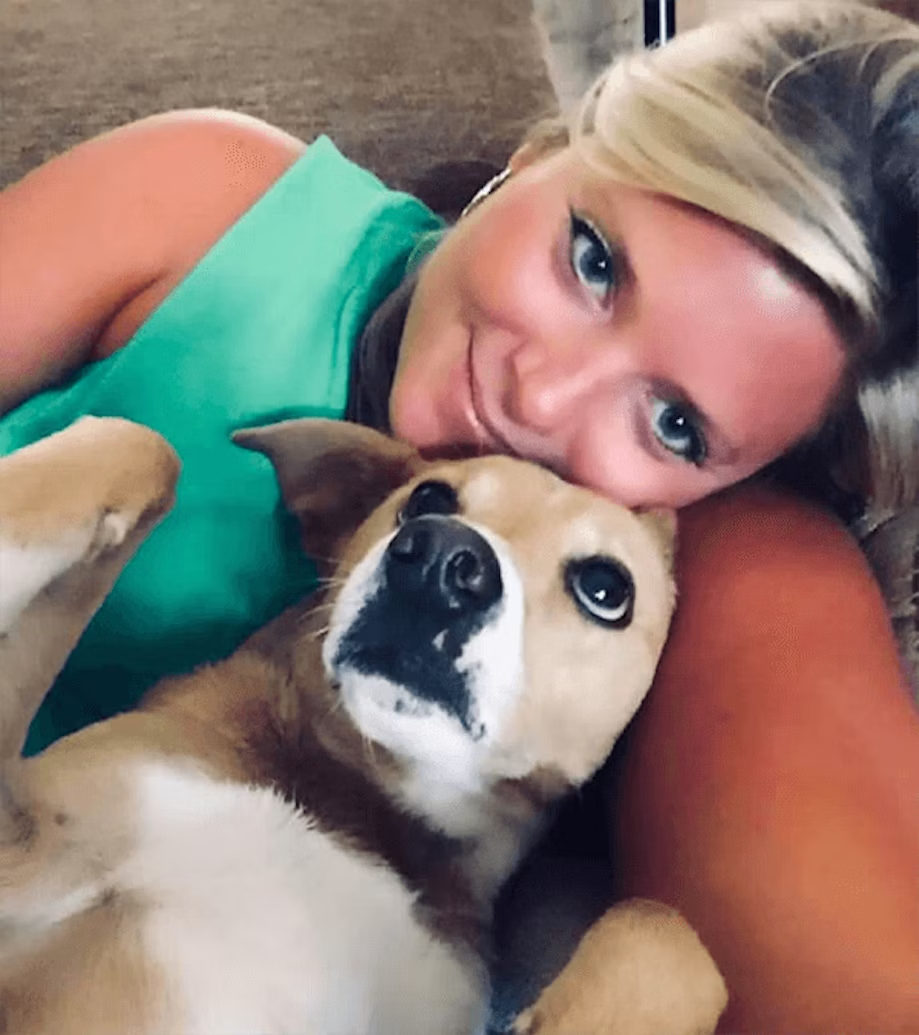
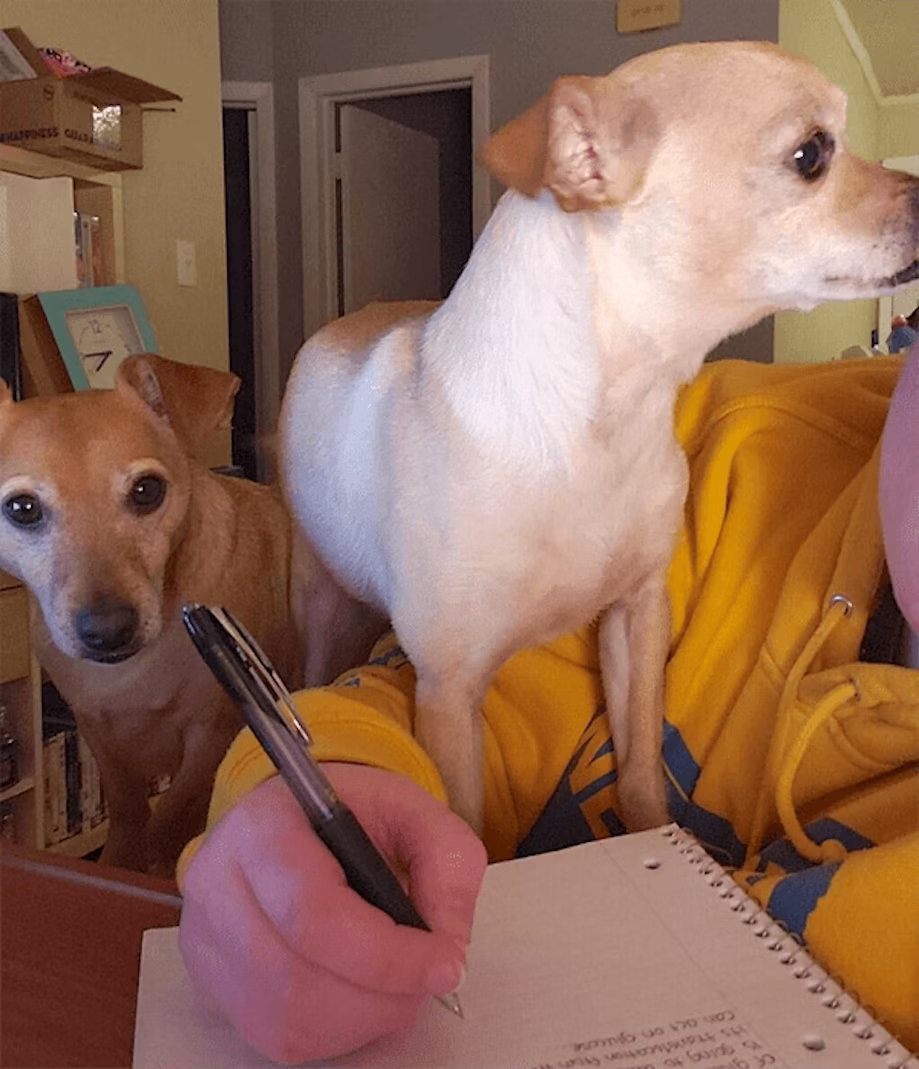
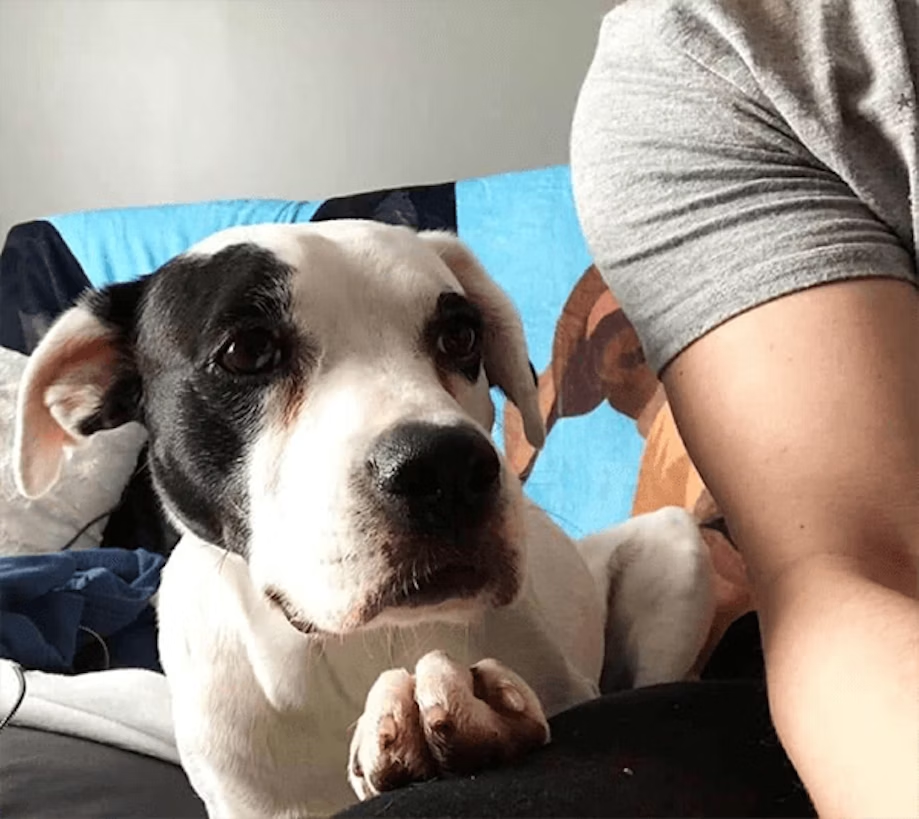
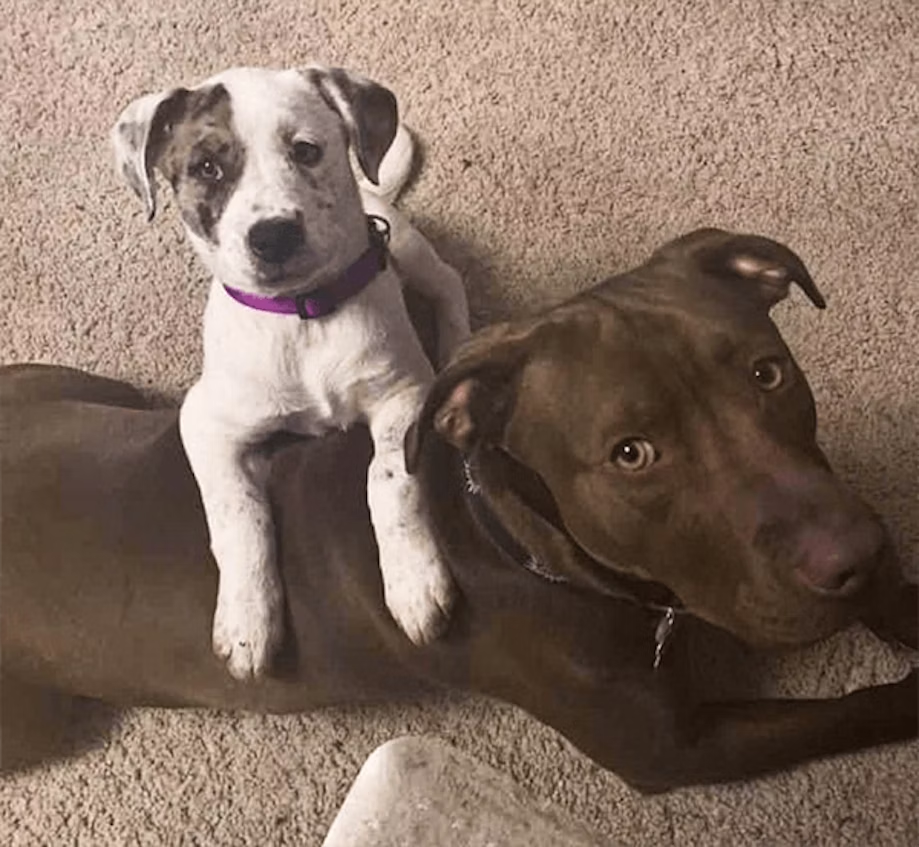
The impact of breed on how dogs show affection
A key factor that influences your dog’s love language is ancestry. Remember, breeds were created to promote certain behavioral traits that best serve specific needs. The traits that make dogs good at their jobs also impact the way they show love.
For example, Sporting dogs like the Labrador Retriever or Irish Setter were bred to work closely with hunters. Because these dogs are so eager to please, they show love by doing whatever they can to help out their favorite human. They learn to read your moods, anticipate your needs and often lean into you or put a nose in your lap just to let you know they’re there.
Asian breeds, like the Akita or Chow Chow, were bred to protect people or property. While they are incredibly loyal to their families, they can be reserved around strangers. They typically show love by attentively sitting near—but not on—their family members so they can be ready to engage if a threat emerges.
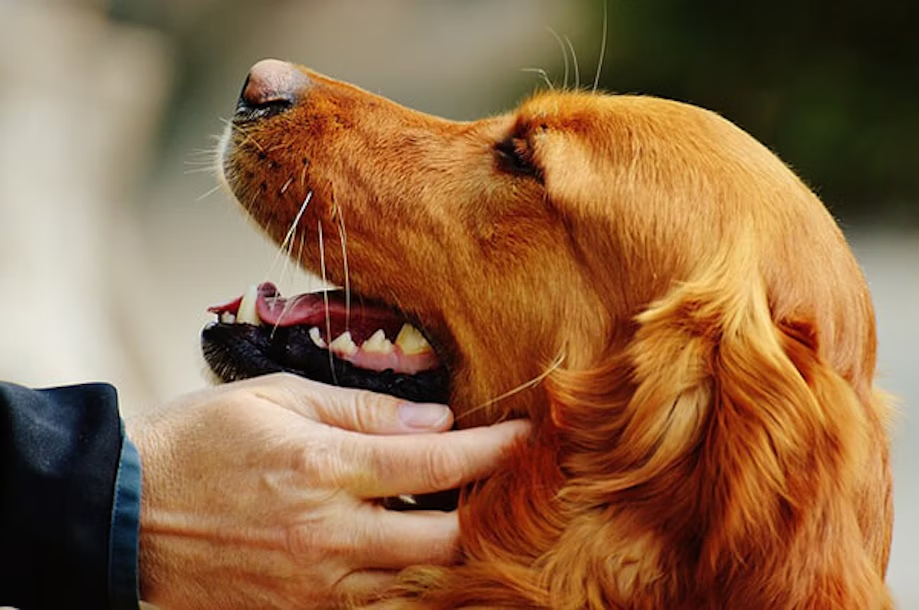
Learn to speak your dog’s love language.
Love is a two-way street! As pet owners who would do anything for our furry friends, it’s helpful to understand not just how dogs show love, but how they like to receive it as well. Nothing beats time spent with your individual pup learning what makes that tail wag. But there are a few hints you can follow based on some of the popular breed groups.
- Asian breeds: It’s usually best to let dogs in this group come to you. They like to give and receive love, but prefer to do it on their own terms.
- Arctic breeds: These high-energy dogs enjoy playtime with their people. It shows them you love them, and also gives them some much-needed exercise.
- Companion breeds: Not surprisingly, dogs in this group love a lap to sit on or a hand (or two) to pet them.
- Guard breeds: Despite their tough exterior, guard dogs are softies at heart. They enjoy belly rubs and hanging out on the couch. Bonus points if you have a bed big enough to fit you both.
- Herding breeds: Whip smart and energetic, herding dogs are happiest when they have a job to do. Show them your love by dedicating lots of time to physically and mentally exercising them. Long play sessions, agility courses, and puzzle toys may be the way to their hearts.
- Sporting breeds: Running, swimming and retrieving are all likely to keep sporting dogs happy. Just be sure to save some time for cuddling.
- Terrier breeds: These little fireballs enjoy plenty of mental and physical exercise. But once they burn that energy, they love spending quality down time with their person.
Discover how DNA influences your dog’s love language.
Is your pup’s breed background a mystery? Fear not! A Wisdom Panel™ test can help give you insight into your dog’s DNA so that you can develop your own language of love and build your bond.
Test My Dog